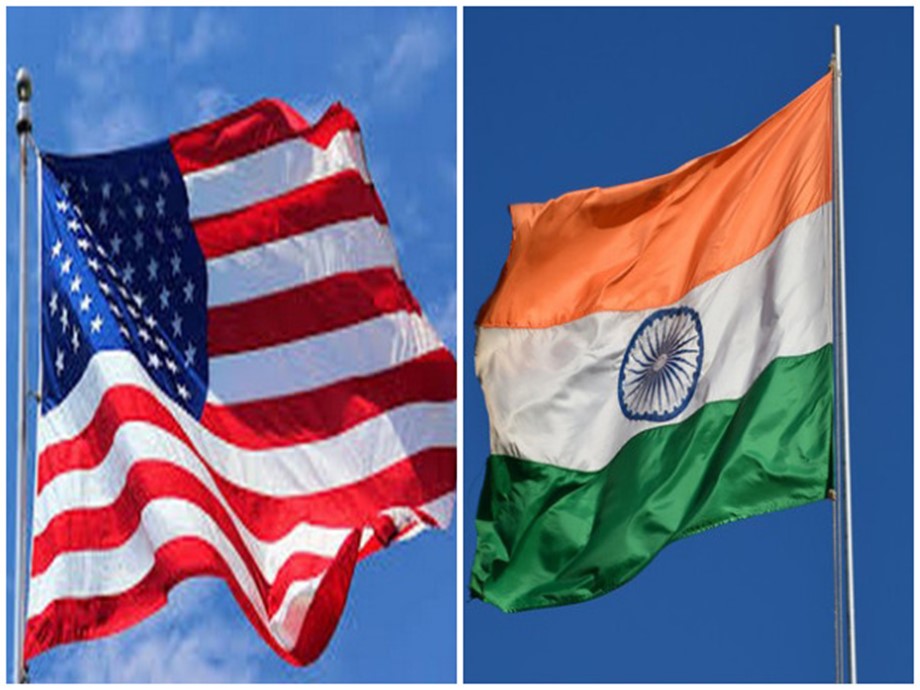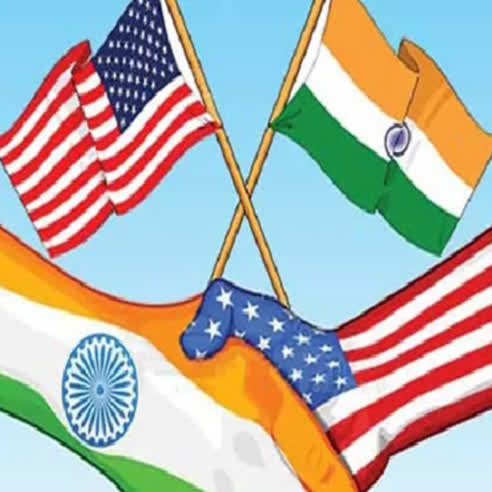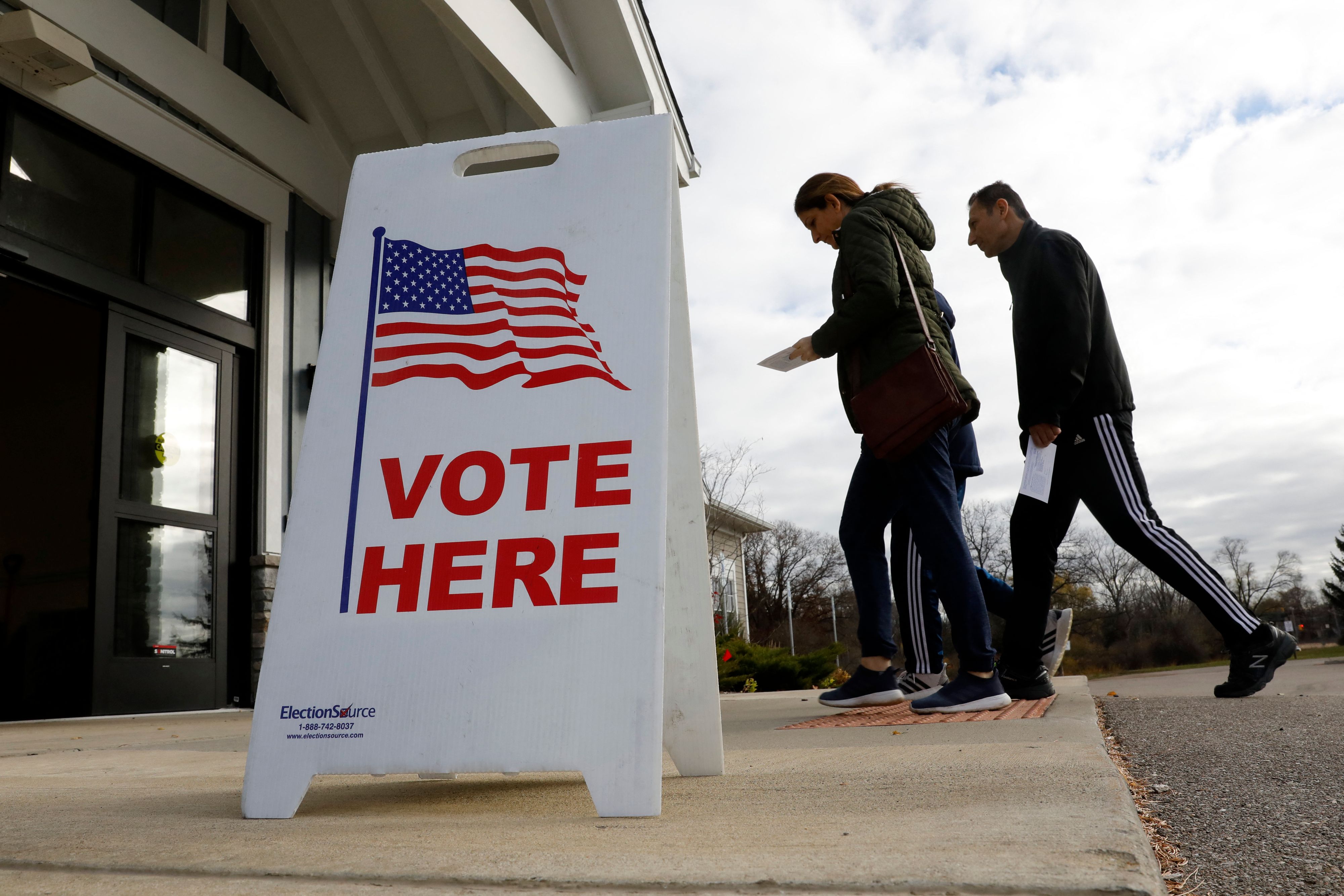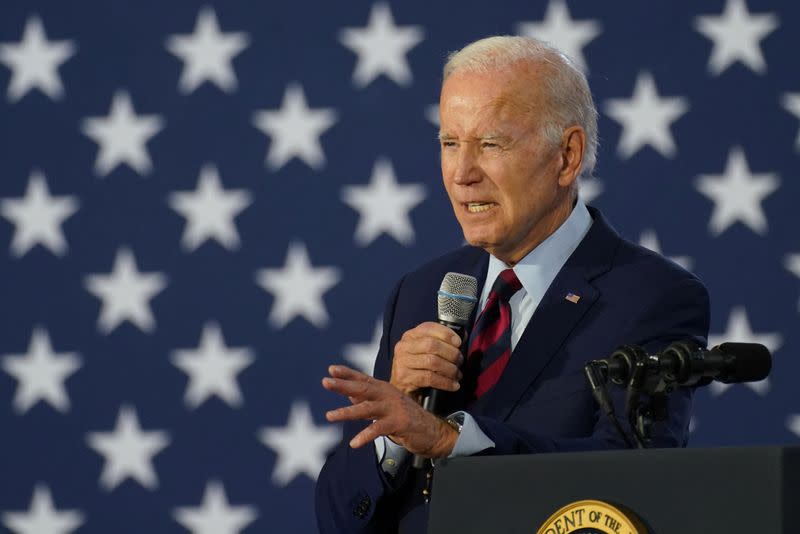Results of the United States midterm elections are unlikely to have an impact on relations between the US and India.

Although the United States went to the polls, Britain had a new Prime Minister two weeks prior. Even if the midterm “madness” may not make headlines across the world, it will have a significant impact on how the Joe Biden administration performs for the remainder of its time and will serve as a subliminal referendum on its policies. The races fluctuated wildly, much like a rollercoaster, but this election cycle finished with a runoff in Georgia , with incumbent Senator Raphael Warnock and his Republican Challenger Herschel Walker tied in a fight that was too close to call.
Numerous races for the House, the Senate, and even some gubernatorial elections that are not directly related to Congress are at stake. A small number of House lawmakers may be able to influence or reject the chamber’s agenda depending on the results of the polls. Other than Georgia, competitive elections in Wisconsin, Nevada, and Arizona are at risk in the Senate.
Currently, Kevin McCarthy, the House Minority Leader, is the most probable contender to be elected House Speaker, while others are likely to enter the race. As a result, there will likely be a further stalemate in Washington since the President and the House Speaker are unlikely to agree. In terms of foreign policy, the US will be less able to present a strong image abroad, particularly to the Global South, on topics like climate change and human rights.
The majority of international commentators are persuaded that strategic synergy with India is a priority for both the Democrats and the Republicans as increased cooperation on the Quad, I2U2, and the Indo-Pacific Economic Framework (IPEF) will take precedence as Washington remains steadfast in its trepidation of a Beijing hegemony in the region, particularly after the CCP’s 20th Party Congress saw Xi Jinping take control for another five years.
The fact that Washington has gone without an ambassador to New Delhi for the longest time is the proverbial “elephant in the room.” Ken Juster, the final ambassador, worked under the Trump administration. Eric Garcetti, the mayor of Los Angeles, was selected in July 2021 and confirmed in January by the Senate Foreign Relations Committee.
His confirmation with the Senate, however, was still pending with the support of Republican senators from Iowa. Getting Garcetti to Delhi is still a top priority for the administration, and it will happen before his nomination expires. The outcome of the Senate will probably decide Garcetti’s fate because the Democrats only have 48 votes in the chamber and would require 51 to win a simple majority. Instead of Garcetti, who continues to be a close confidant of Biden, Washington has sent five charge d’affaires to New Delhi.
Strangely, the change in House power won’t have as big of an effect on foreign policy. Instead, the relationship between China and Russia may be more complex, allowing the two countries to cooperate while having different beliefs.
Small yard, a high fence was the Biden administration’s guiding principle, which effectively meant avoiding the Trump-style bellicosity of launching trade fights. When the GOP members realised the serious threats to Taiwan in the Indo-Pacific region, they decided to further align with India and its Quad partners on a Beijing containment rather than engage Beijing, despite the fact that they are typically proponents of free trade. For fear of being perceived as “too soft on China,” the Republicans may opt for more robust tactics.
The dragon-bear complex takes us to Russia, where Vladimir Putin and the Kremlin are roundly derided on all sides of the political line. Leaders in Congress who are involved in international policy have unwavering support for Ukraine. The relationship has not been harmed by New Delhi’s repeated abstentions at the UN, Indian External Affairs Minister S Jaishankar’s trip to Moscow, or India’s continued oil purchases from Russia, but it is likely to face opposition on The Hill as long as the CAATSA waiver for India’s purchase of the S-400 missile defence systems is still pending.
The meeting of the Trade Policy Forum (TPF) between USTR Katherine Tai and Minister of Commerce and Industry Piyush Goyal will now take place in 2019, due to the impending midterm elections. The political desire to pursue outstanding trade problems, such as perhaps reevaluating India’s Generalized System of Preferences (GSP) status, which was cancelled by the Trump administration in 2019, may be reflected in the makeup of Congress going ahead. Although New Delhi has signed trade agreements with the United Arab Emirates, Australia, and the UK, there are still a number of unresolved issues with Washington.
What does it signify for US-Indian relations?
As the results of the fiercely contested midterm elections start to trickle in, the Republicans are poised to take control of the US House of Representatives and are locked in a neck-and-neck battle with the Democrats for control of the Senate. Despite preventing the widely anticipated “red wave,” the Democrats will no longer be in charge of the 435-member House of Representatives. Relationships between the US and India shouldn’t be directly impacted by the US midterm elections, according to Richard Rossow, director of the India chair at the prestigious US think tank, the Centre for Strategic and International Studies (CSIS).
According to Rossow, the US-India relationship does not require ongoing legislative support, so a Republican takeover would have very little effect. Except, of course, when a significant agreement is being discussed that calls for legislative support. A new ambassador to India, a position that has been unfilled for nearly two years, would be one of the things New Delhi should anticipate after the midterm elections. Los Angeles Mayor Eric Garcetti’s candidacy by the Biden administration was rejected in January by the departing US Senate.
The executive branch did not reply. This compelled the Senate Foreign Relations Committee, whose approval is required for assignments involving ambassadors and foreign policy, to rethink it or appoint a successor. The US appointed Elizabeth Jones as Charge d’Affaires in New Delhi last month. The Biden administration would likely attempt to have Garcetti confirmed by the Senate after the midterm results.
The fact that President Joe Biden would be constrained in his strategy with the Republicans controlling the House may be one of the variables that might have some impact on relations. Therefore, it will be challenging for Biden to act alone to help the economy out of its current dilemma. In an effort to avoid a showdown with Republicans the next year, Politico reports that the Biden administration is looking into a number of alternatives for lifting the debt ceiling.
According to Politico, “the debate comes at a time when several Republicans have advocated using the debt ceiling to extract concessions from the White House, and it reflects growing fears in Democratic and economic circles that the GOP may be willing to jeopardise the nation’s credit and financial stability in pursuit of its political goals.” The likelihood of a lame-duck session after Republicans take control of the House could jeopardise the financial markets and the nation’s shaky economic recovery. The Indian economy may also be impacted indirectly by this.
The economic headwinds will finally reach India when the US enters a recession. This might fuel inflation even more, result in job losses, and drive up gasoline prices. As we have seen in the past, joint control between the Republicans and Democrats can be advantageous for India. Historically, both Democrats and Republicans have supported US-India ties strongly. Bipartisanship, for instance, was important in India’s success in achieving the civil nuclear deal that ended the nuclear isolation of New Delhi brought on by the 1998 Pokhran II nuclear tests.
George W. Bush, the incumbent Republican president at the time, proposed and promoted the agreement. The Democrat-controlled House of Representatives and Senate then approved the agreement after India agreed to separate its military facilities from its civilian nuclear plants, which would be open to international inspection.
A US plan to supply F-16s to Pakistan in 2016 was stopped by bipartisan congressional support for relations with India. The Democratic government of President Barack Obama put forth the idea. And it was defeated in a bipartisan vote by a Republican-led Congress.
Under the Countering America’s Adversaries Through Sanctions Act of 2017, which aims to punish Russia by scaring away its military equipment customers with the threat of secondary sanctions, it was a Republican-controlled Congress that sympathetically considered an appeal from the Trump administration’s defence secretary Jim Mattis in 2018 to waive sanctions against India (CAATSA). This law made India a target for US sanctions as a result of its acquisition of Russian S-400 missile defence systems. Due to the strong bipartisan support for relations between Washington and New Delhi, India seems to have escaped these sanctions.
Most important foreign policy issues are shared by Republicans and Democrats.
Republicans gaining a majority in the House of Representatives, as many believe they will, won’t significantly alter US foreign policy, but it could have an impact on efforts to combat climate change and support the defence of Ukraine. The embrace of climate deniers and the radicalised anti-immigrant rhetoric of many of its most recognizable figures have made the Republican Party notorious.
The party is imposing a version of America on itself that is out of step with virtually all other rich democratic countries due to its refusal to address the epidemic of gun violence and its defence of a historically dubious interpretation of the right to bear arms as well as its push for a national abortion ban. The decisions made by voters in November will probably shape the values that become more prominent in the US and, consequently, the affinities that America’s closest allies feel for it.
The elections are expected to have a greater impact on domestic policy. President Joe Biden’s domestic agenda would be stymied by a Republican majority in the House, and he would be less able to raise taxes to fund his spending plans. The decisions made by voters in November will also have an impact on the effort to hold the former president Trump accountable. The congressional investigations into Donald Trump would come to an end if Republicans took control of the House. Republicans would instead use their electoral victories to begin their inquiries into the Democrats.
If the Republicans won the House, one anti-Trump Republican on the January 6 committee looking into the Capitol building’s storming last year forewarned of a vengeful and obstructionist turn against Biden from his Republican colleagues. According to Congressman Adam Kinzinger, “They’re going to seek an impeachment vote on President Biden every week.” Under this cloud, the January 6 Committee is working diligently to wrap up its proceedings and release its report.
Under Trump, party support for a harder approach on China was strengthened. He energised US voters by attributing the loss of industrial jobs to China. Later, he blamed China for the Covid outbreak and for concealing it. A bipartisan consensus on America’s China policy has been strengthened by China’s repression of democracy in Hong Kong, its assertiveness in the South China Seas, tensions over Taiwan, and reports of abuses of Uighurs’ human rights in Xinjiang. However, it appears likely that a more vocal Republican base will result in rhetoric against China that is more ideologically motivated.
The landscape has also shifted in Russia. Vladimir Putin is treated more leniently by Republicans under President Trump. However, the Russian president’s aggressive invasion of Ukraine has increased NATO support and solidified American opposition to him. Republicans and Democrats are now more aligned than they were prior to Trump’s violation of the Iran Deal, which was a pact reached to discuss the Middle Eastern country’s nuclear program. On some contentious issues, like immigration reform, progress has already stalled, and it is unlikely that this will change.
Who is India’s friend—Joe Biden or Donald Trump?
Despite the fact that they share power, Democrats and Republicans have improved their relationship over the previous 20 years. The two parties have different opinions on their relationship with India. One of the main points of contention may be India’s response to Russia’s war in that nation given that the Democrats have harshly criticized Putin’s military actions in Ukraine and the supply of weapons to Kyiv.
The Democrats first pressured India to cease buying Russian oil in response to the energy crisis. Despite this, remained resilient and even exposed the hypocrisy of the West in regards to its energy relations with Russia. Republicans are expected to be more understanding of India’s stance on the Ukrainian conflict than Democrats.
Second, a Democratic-led Congress would advance policies related to climate change and immigration, in contrast to the Republican Party, which is led by Donald Trump and is opposed to both issues. So, if the Republic controls the Congress, there would be a decrease in the number of immigrants from India to the US.
Edited by Prakriti Arora




